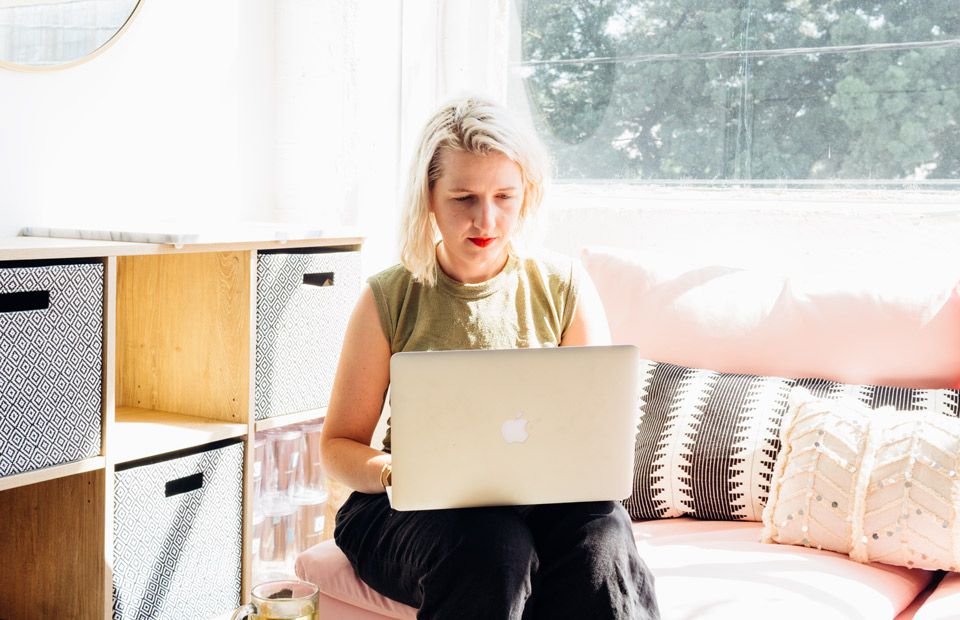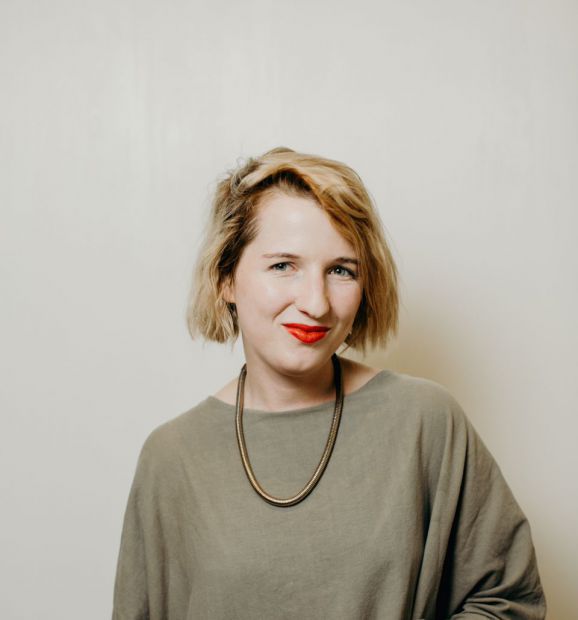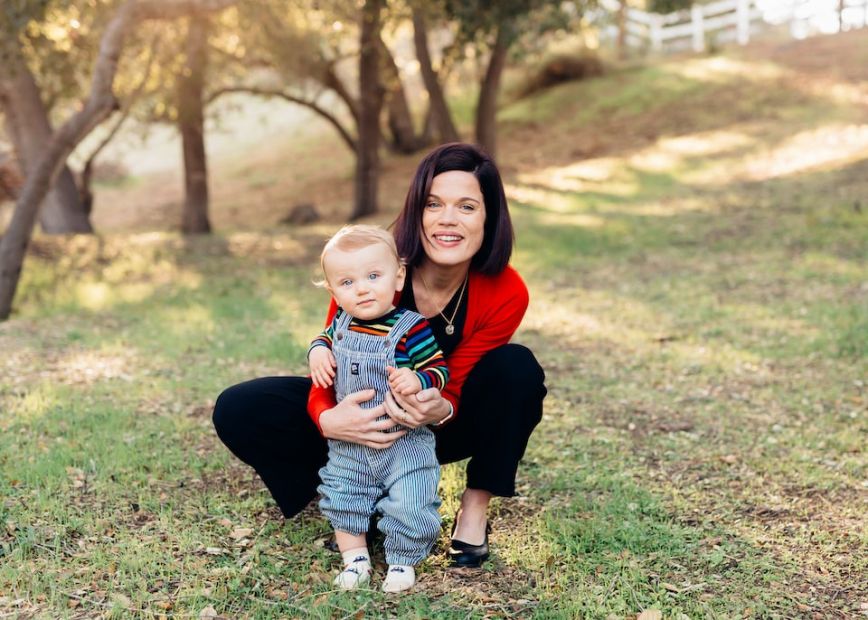Don’t get me wrong, I believe wholeheartedly in each of those pieces of advice. But personally, I’ve always been one of those people who does better with The Big Push. I’ll start those weekly coffee dates, only to drop them three weeks in. But when I commit to something like a No Spend Month, a Dry January, or paying off my debt as quickly as possible, I’m more likely to get it done. Go all out, then chill out. That’s how I thrive.
So when Open Campus at The New School offered to let me try one of their online short courses, Design Thinking Fundamentals—which focuses on solving problems by isolating pain points and devising creative solutions—it sounded right up my alley. I’d learn some new skills I could use at Career Contessa to create better content and launch new projects and have a new line item for my resume—all in under six weeks.
1. Pick Instructors Who Are Actually Doing the Work
Thankfully, I took a year off after graduating to work and recuperate. And I quickly discovered what many before me had: you can only learn so much in a classroom.
From the start, it was clear Design Thinking Fundamentals wasn’t going to be another college course. The focus was going to be on applying lessons and concepts to the real world.
When the course opened, an email landed in my inbox from the instructor, Lee-Sean Huang. The thing about Lee-Sean is, he doesn’t just teach design thinking. He uses it daily in his work as cofounder and creative director of Foossa, a successful design consultancy firm. This was key.
Lee-Sean was a very real dude who always seemed a little awkward in front of the camera, which I remember thinking was exactly as it should be. This was a guy who was going to run this class on a topic that he was passionate about—and then get back to his own work. Learning best practices from someone who applies them daily meant that lessons felt authentic and useful. Throughout the course, my mind would drift to ways I could use what I was learning at Career Contessa.
So my takeaway applies to more than online classes: anytime you can, find someone who is an expert in an area that interests you. Then focus on listening to what they have to say as carefully as possible.
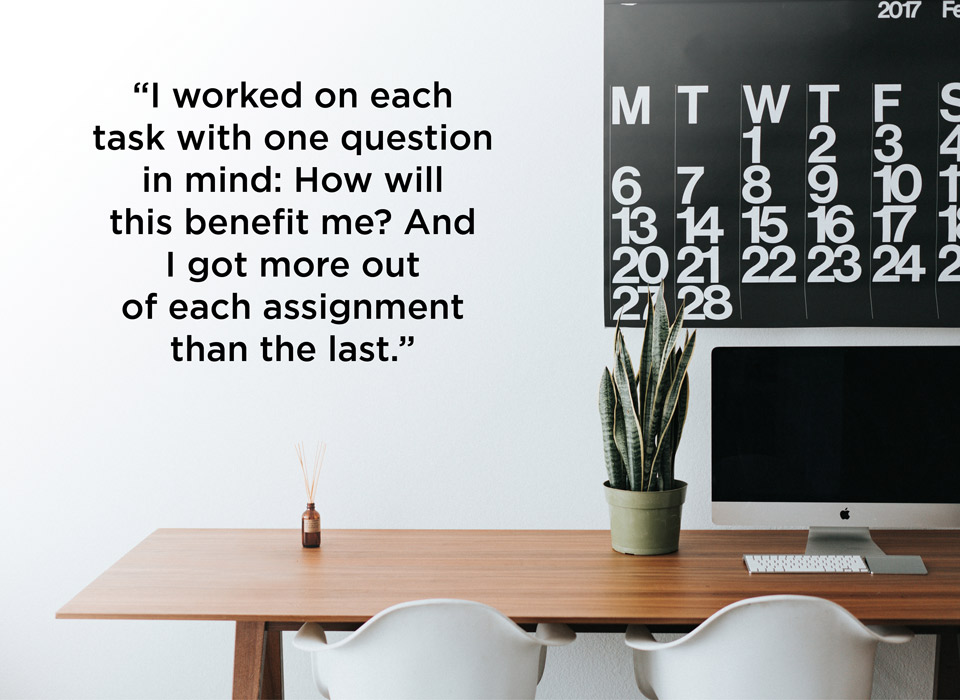
2. Find the Way You Learn Best and Focus on What’s Most Important
So began the process of determining when and how I learned best. The answer, typically, was after dinner on Thursday nights. But at one point, I worked on a week’s worth of videos and assignments on a flight from West to East Coast. Being able to work whenever I had the time meant that I didn’t feel pressure to rush through things. Slowly but surely, I tackled each assignment—watching videos from start to finish and taking notes as needed.
3. Focus on What’s Most Valuable for You (Meaning Don’t Do It Because You “Should”)
The other brilliant thing was that there was a clear path forward for me if I wanted to pursue more coursework in the field. Actually, Design Thinking Fundamentals is the first of six courses offered by Open Campus, which you can combine to obtain a certificate in Design Leadership for Business. Having that freedom to pick and choose—by taking just one class or enrolling in a deeper path of study by taking them all—gives you a sense of control and direction.
If there’s one piece of advice I can give you from my experience it would be this: Don’t just commit to learning one “skill” because you think you should—think about why and how that skill can help you in your career path.
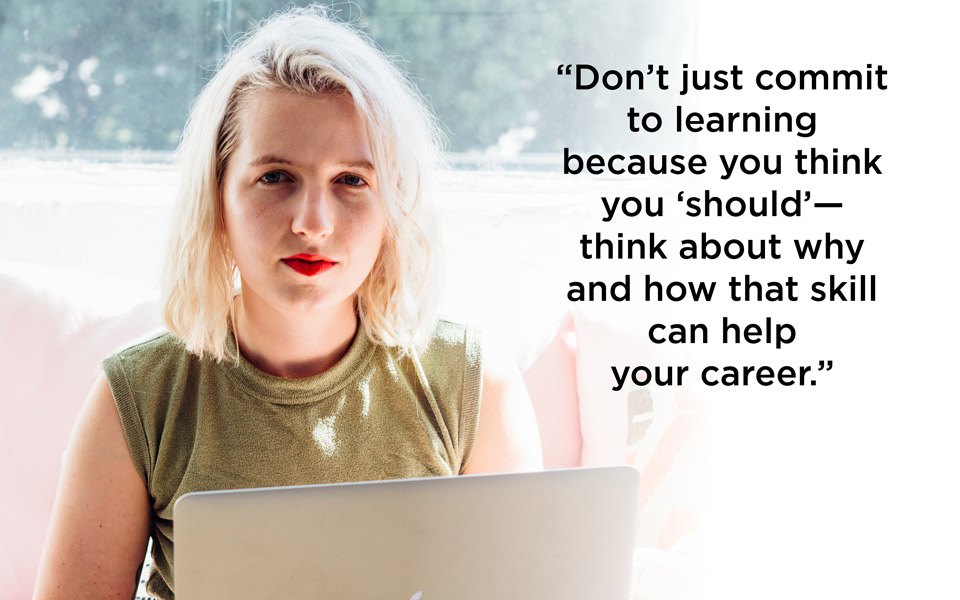
4. You Have to Do the Work—But You Have to Do It For You
Of course, feedback from the instructor and the other students helps—but how I felt about my work mattered so much more. I took pride in it in a way that I hadn’t in college. The result is it felt like I retained more of what I learned.
5. those skills aren't worth anything until you put them into action
The end of the class aligned almost exactly with my two-year anniversary at CC. We’ve evolved since I started—going from a team of two (me plus Lauren) to a team of six (including—gasp—a dude).
Leading up to our annual review, Lauren asked me how I saw my role evolving. My work in design thinking had paid off because I had an answer—I wanted to shift my focus toward brand strategy. I’m beyond excited for what this new chapter of my career will bring, but mostly, I’m ready to consider what to learn next.
Bonus: How to Work Your New Skills into Your LinkedIn and Resume
- Add your course to LinkedIn. Did you know there’s a section on your profile just for coursework and certifications? Head to “Accomplishments,” then add your completed course to your profile. You can also choose to notify your network about your new skill—a great option if you’re hoping to leverage it in your job search.
- Update your Skills section. Chances are whatever your new skill, it’s listed on LinkedIn. So add it!
- Ask a classmate or—ideally—your instructor to endorse you. So step one: if you bonded with them during your course, make sure you connect with them on LinkedIn so you can stay in touch. Once you’ve done that, be bold. Ask your instructor if he/she would be willing to endorse your new skill on LinkedIn or even write you a recommendation. The latter is particularly useful if you’re job searching.
- Tweak your LinkedIn summary. If you invested time and money into a big course or immersive class, the point was to transform what your career looks like. That means you should probably update your summary to incorporate your new interests and skills. It’s the perfect space for focusing less on what you’ve done before and more on what you’d like to do in the future—with your new skills of course.
- And, of course, add it to your resume. This looks different for everyone but in my case, I added Design Thinking Fundamentals to my “education” section (i.e. “Design Thinking, Open Campus at The New School, Summer 2017”). I also tweaked my “expertise” section to include: design thinking, ideation and prototyping, creative briefs and creative project management.
